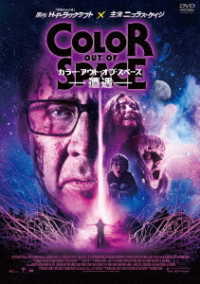Full Description
The Sage Handbook of Decolonial Theory is a groundbreaking transdisciplinary resource that expands the epistemological and geographical horizons of decolonial thought. This handbook prioritizes the Global South, fostering South-North and South-South inter-epistemic dialogues and situating decolonial thought in sites of struggle. It builds on decolonial thought and praxis from Latin America and the Caribbean, Africa, Asia, and Palestine, among other regions and countries. Addressing the erasure of knowledge production from the Global South in dominant academic spaces, this handbook brings together decolonial scholars and activist intellectuals from the Global South and engages with politically committed scholars in the Global North. It emphasizes the geopolitics and ethics of knowledge production and the importance of situating one's work in historically excluded regions and communities.
Organized into five parts, the handbook includes conceptual essays and empirical studies on decolonial thought and praxis. It covers a range of topics from (de)coloniality, geopolitics, and transdisciplinarity to decolonial feminisms, gender and sexuality studies, and racial capitalism. The chapters convey a sense of urgency and a committed political voice, demonstrating how decolonial theory can interrogate and intervene in the modern/colonial racial capitalist heteropatriarchal world.
The Sage Handbook of Decolonial Theory is not just for academics; it is written for anyone interested in radical thought and praxis. It recognizes decolonial theory as a plural and dynamic field, concerned with power hierarchies, historiography, and epistemological critiques of Eurocentrism. Ultimately, it teaches us how to think with and act alongside struggles for liberation.
Part I: Key Debates in Decolonial Theory
Part II: Geopolitics and Geographies
Part III: Transdisciplinarity
Part IV: Feminisms, Genders, & Sexualities
Part V: Racial Capitalism
Contents
PART I: KEY DEBATES IN DECOLONIAL THEORY
1 The Coloniality of Power and Social Classification
2 Decolonial Praxis and Decolonizing Paths: Notes for These Times
3 Palestine, the War against Decolonization, and Combative Decoloniality
4 Encruzilhada: The Concept of Crossroads in the Afro-Diasporic Cosmovision as a Decolonizing Theoretical Practice
5 The Struggle for the Decolonial Liberation of Palestine
6 Occupations of Language: Queer Praxis Grounding Decolonial Approaches
7 A Never-Ending Historicity: The Antifuturist Discourses of Abya Yala and their Confrontation with the Finite Time of Western Modernity
8 Decoloniality is Agency
9 Insurgent Decoloniality: Situating Thought in Sites of Struggle
10 The Rise and Fall of Decolonial Social Theory: Co-Optation, Intellectualisation, and the Epistemic Decolonial Turn
PART II: GEOPOLITICS AND GEOGRAPHIES
11 Demystifying Decolonization: Reclaiming Palestinian Authorship of their Destiny
12 We Can't theorize Without an Image of the World: Toward a Heterogeneous, Relational, and Planetary Imagination
13 The Earth of the (Un)Damned: Meditations on Planetary Decolonisation
14 Mapping Euromodern Geographies: Plantations, Prisons and Modernity—Toward Afromodern Decolonial Politics
15 "Estamos Bien:" A Framework for Interrogating the Coloniality of Resilience for Postsecondary Education in Puerto Rico
16 The Black Diaspora and the International: Learning with the Difference
17 Geographies of Loss: Dispossession, Tourism, Mestizaje, and (Un) Settler Colonialism in Mexico
18 Hindu Nationalism and Indigeneity: Theoretical Challenges and Opportunities for the Decolonial School of Thought
PART III: TRANSDISCIPLINARITY
19 Peace and (de)coloniality
20 Towards Decolonial Islamophobia Studies
21 Unlikely Sources of Decolonial Theorizing: My Jamaican Grandmother's Stories of Resistance, Reclaiming, and Revitalization
22 Lamentations, Combat Breathing and Black Women's Creative Practice as Episteme
23 Anti-racism, Decoloniality and Institutions: Between Rocks and Hard Places...
24 Spaces of Coloniality and Anthropological Practices in Southern Abya Yala Between the Late 19th and Early 20th Century
25 Embodying the Land: Diversity in Indigenous Health Knowledge Production from Palestine to the Great Plains
26 Towards a Transdisciplinary Decolonial Research Praxis: Insights from Using Decolonial Theory in Collaborative Research
PART IV: FEMINISMS, GENDERS, & SEXUALITIES
27 An Inherently Decolonial Existence: Defining Palestinian Feminist Praxis
28 The World of the One: Colonizing to Exist and the Relevance of Indigenous Epistemologies of Co-existence
29 A Feminist Decolonial Positionality: Bodies, Resistance, Knowing
30 Coloniality of Sexuality: Enacting Impositions
31 Holding Some Ground on a Greasy Dancefloor: Decoloniality, Caste, and South Asian Queer Diaspora
32 Arrested Possibilities, Islam Otherwise, and Queer Life: Thinking Liberation, Religion, and Decoloniality alongside Shia Muslim Scholars
PART V: RACIAL CAPITALISM
33 Racial Capitalism as a Theory of History
34 Racial Capitalism: A Guide for the Naysayer
35 It Has Been Racial Capitalism Since the Beginning
36 Towards a Decolonial Pan-Africanism of the Twenty-First Century: A Philosophy of Liberation Perspective
37 On Decoloniality and/in "Eastern Europe"
38 Racial Capitalism and Fascism
39 Entrepreneurship as Counterinsurgency in the Global South
40 Economic Orders after Sovereignty: Decolonization and Combative Decoloniality in Ghana
41 Decoloniality and Racial Capitalism
42 Climate Policy and Social Death: how Euro-American Green New Deals Reinforce the Disposability of African Life in the "Post"-colonial








